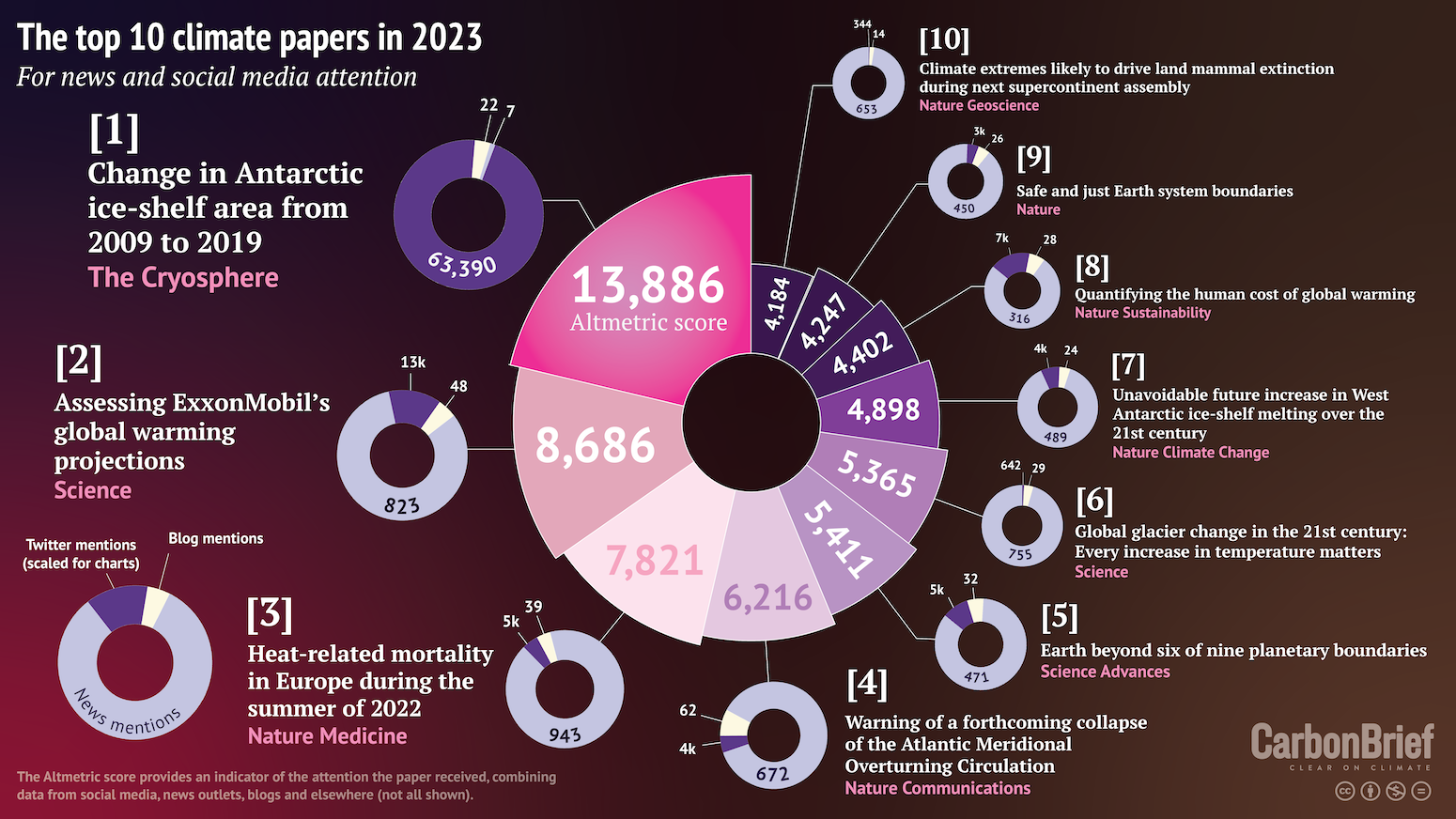
Climate change and energy were among the topics that received the most media attention in 2023. IIASA researchers contributed to six out of the 25 most mentioned papers in online news articles, as well as on blogs and social media platforms.
Using Altmetric data for 2023, Carbon Brief has compiled its annual list of the 25 most talked-about climate- or energy-related papers that were published the previous year. The list focuses on peer-reviewed research papers only – commentaries or other papers that are not formally peer-reviewed are not included.
The infographic below shows which papers made it into the top 10, while the article includes analysis of the full list of 25, including the diversity of their authors and which journals feature most frequently.
Congratulations to all IIASA-affiliated authors who contributed to the following papers:
#8: Quantifying the human cost of global warming: Caroline Zimm
#9: Safe and just Earth system boundaries: Nebojsa Nakicenovic and Caroline Zimm
#11: Satellites reveal widespread decline in global lake water storage: Yoshihide Wada
#14: Assessing the size and uncertainty of remaining carbon budgets: Zeb Nicholls, Chris Smith, Jarmo Kikstra, Edward Byers, and Joeri Rogelj
#18: Indicators of Global Climate Change 2022: annual update of large-scale indicators of the state of the climate system and human influence: Chris Smith, Joeri Rogelj, and Carl-Friedrich Schleussner
#20: The 2023 report of the Lancet Countdown on health and climate change: Gregor Kiesewetter, Fabian Wagner, and Laura Warnecke
Adapted from an article by Carbon Brief. Read the original text here.
News

23 July 2024
Fostering transformation of agrifood systems in Indonesia

22 July 2024
Are sustainable aviation fuels truly sustainable?

17 July 2024
